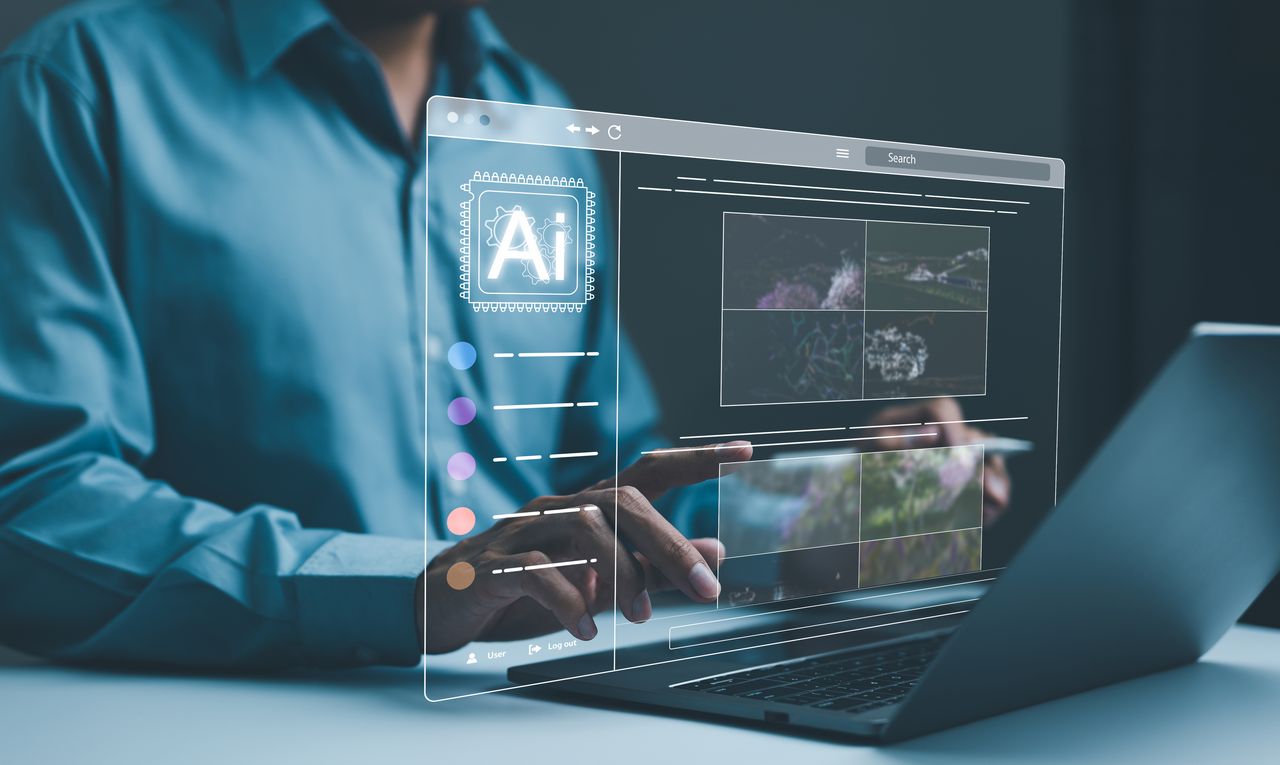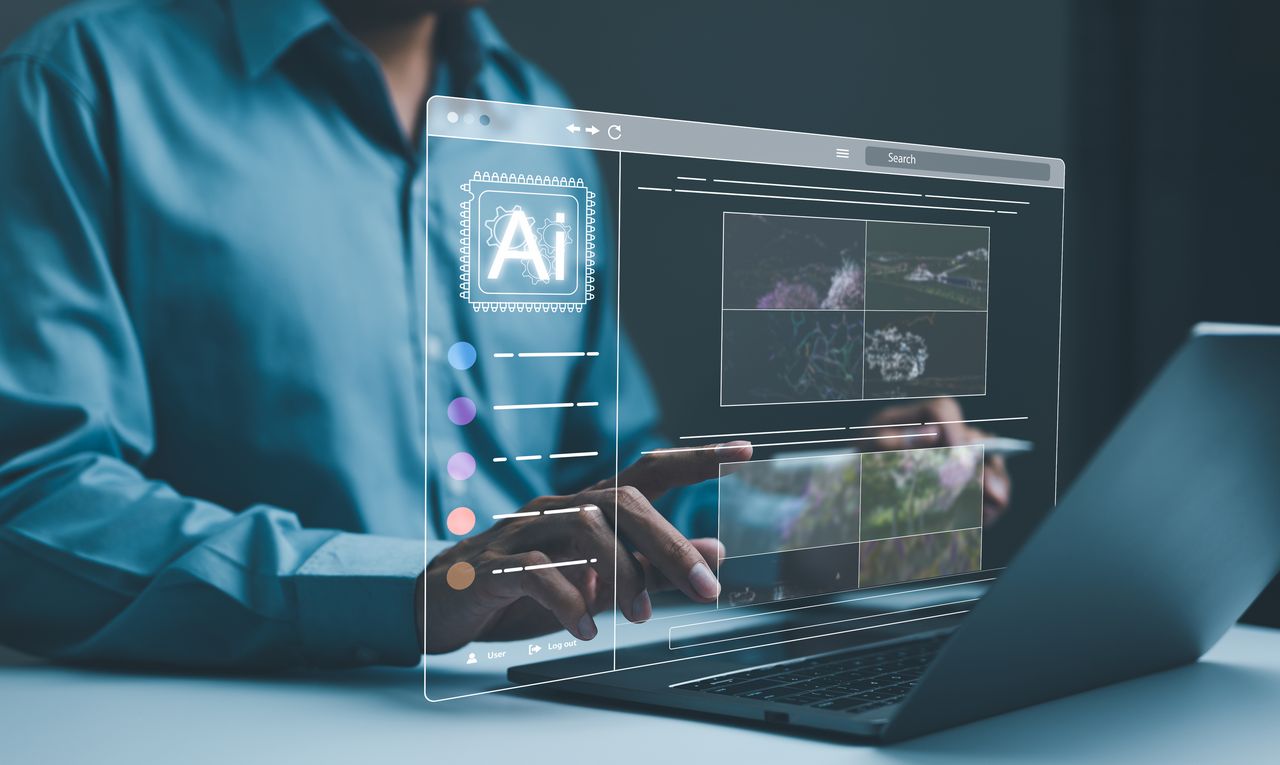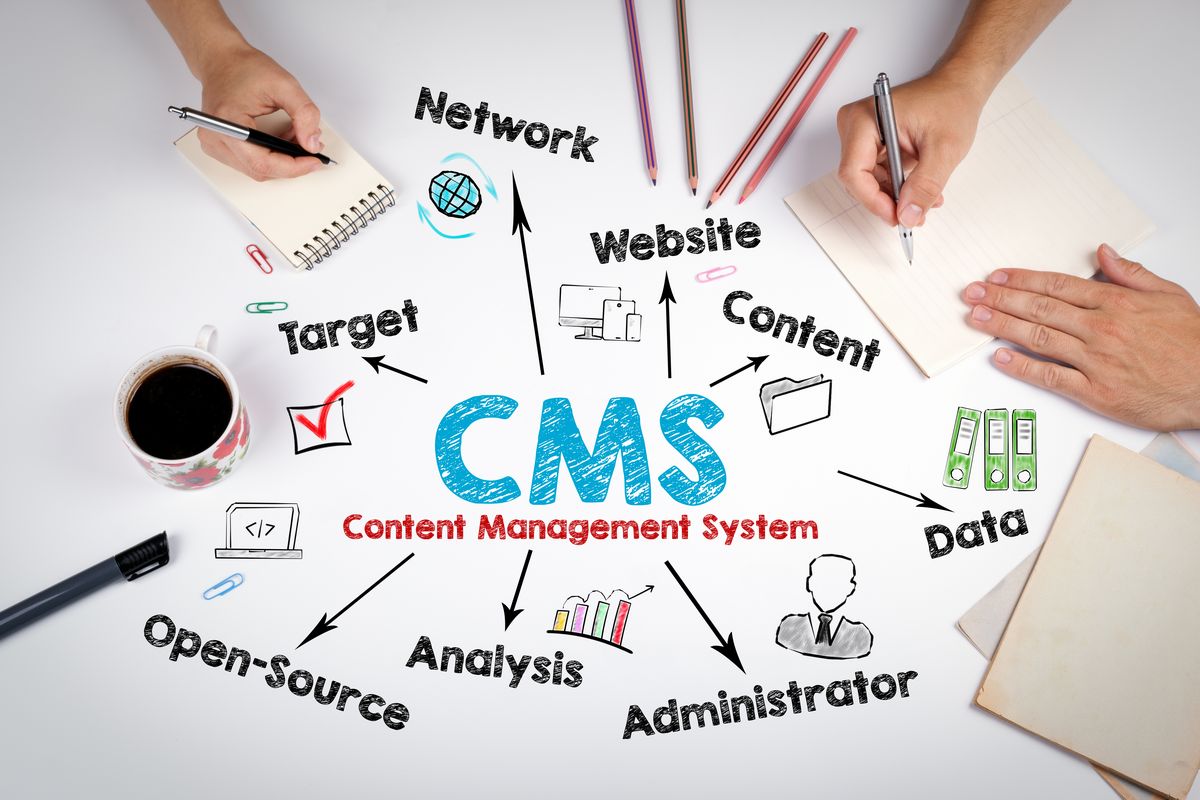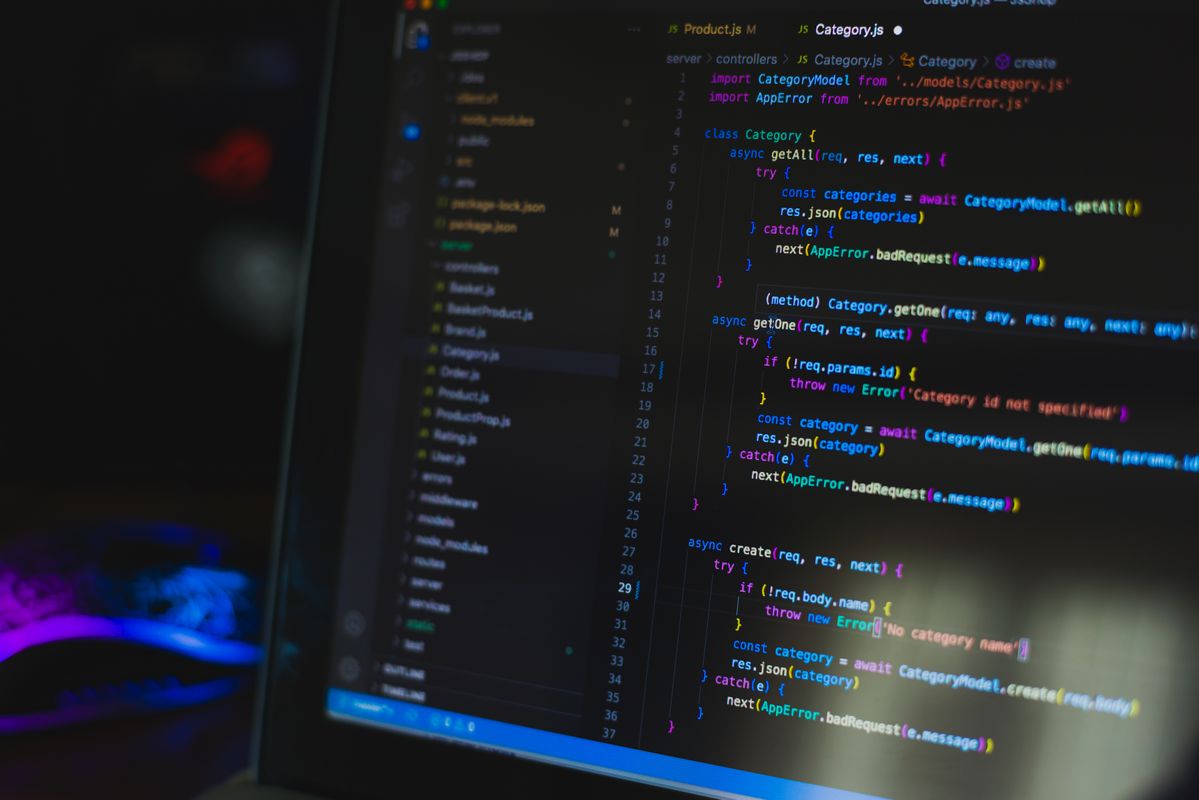Introduction: A Rapidly Evolving Landscape
Web development has been revolutionized by the multifaceted advancements in technology, particularly in the area of artificial intelligence (AI) and machine learning. As we explore the landscape of technological progress in 2024, it is clear that the integration of AI and machine learning in web development has completely reshaped the way developers build and design websites. In particular, AI and machine learning have made the process more productive, more efficient, and more creative than ever before. Coding, once considered a tedious and strictly manual task, has been largely automated and enhanced due to these technologies. But AI's impact doesn't stop at code generation; it extends to elements such as iterative testing, website design, and even content development. The changes we are witnessing are so profound that experts forecast that the way we perceive web development will undergo a drastic transformation in the foreseeable future.
The Role of AI and Machine Learning in Web Development
The role of AI and machine learning in web development has primarily focused on automating repetitive tasks, personalizing web experiences, and aiding in decision making. Programmer's work is becoming easier due to AI's ability to write and debug code. In fact, AI is showing increasing capacity to develop entire websites based on minimal input, drawing on thousands of previous designs and marketing plans. Machine learning algorithms, particularly deep learning systems, can iteratively improve on their prior performance, learning from mistakes, with minor input from human overseers.
Web personalization is another domain where AI and machine learning shine. They enable a customized experience for individual users, improving customer satisfaction, and increasing conversion rates. Consumers today expect personalized content, and AI and machine learning tools are facilitating this, dynamically adjusting content based on user behaviour, preferences, and past interactions. Using these technologies, websites can offer personalized recommendations, targeted advertisements, and even chatbots that can carry on intelligent conversations.
Outlook on the Future: AI and Machine Learning Transforming Web Development
As we look forward to the future of web development, it is clear that AI and machine learning will continue to play a critical role. As these technologies mature, they will facilitate the emergence of more dynamic, interactive, and personalized web experiences. We can anticipate AI design tools that give non-designers the ability to create visually stunning interfaces. These tools would leverage machine learning algorithms to suggest design components and layouts to developers based on industry trends, user behaviour and aesthetics.
The advent of AI is also ushering in an era of voice user interfaces (VUIs), powered by natural language processing (NLP), where users interact with websites through their voice. Voice-activated web browsing will become a standard part of any online experience, with AI algorithms understanding and responding to natural human speech in real time. Moreover, we can foresee AI taking the helm of website analytics, offering comprehensive insights, pinpointing underlying issues, and suggesting improvements based on data patterns no human analyst could discern.
In conclusion, the integration of AI and machine learning in web development holds immense potential. As this exciting future unfolds, it will continue to transform the field, promoting efficiency, creativity, and more powerful user experiences. Undoubtedly, AI and machine learning's impact on web development is poised to redefine the internet as we know it.

The Intersection of AI and Machine Learning with Progressive Web Apps
Progressive Web Apps (PWAs) encapsulate the future of mobile-friendly web applications, offering a seamless, app-like experience on the web. They load faster, work offline, and can send push notifications, thereby improving user engagement. Meanwhile, AI and machine learning are revolutionizing PWAs, aiding in the creation of more intuitive, seamless, and user-focused applications. For instance, with AI's ability to analyze large volumes of data, developers can build PWAs that learn from user behaviour, allowing these apps to adapt to different users' preferences over time. Using machine learning algorithms, PWAs can continuously improve their performance, offering an improved user experience with each interaction. This demonstrates how AI and machine learning can significantly enhance PWAs, creating more dynamic and intelligent web applications.
Security Aspects in AI-Enabled Web Development
As AI and machine learning become integral to web development, concerns about data security and user privacy are rising. On the one hand, these advanced technologies can greatly enhance web security. For example, with machine learning algorithms, a system can continuously learn from previous attacks and improve its defense mechanisms. On the other hand, there's a risk that, if not properly managed, AI-powered websites could provide cybercriminals with new attack vectors. Therefore, it's imperative for developers to prioritize data security in AI-enabled web development, ensuring robust privacy settings are in place, and that AI functionalities are designed and tested with security in mind. The increasing role of AI and machine learning in web security, showcases both immense opportunities and challenges that need vigilant monitoring.
Overcoming Challenges in AI-Powered Web Development
While the integration of AI and machine learning into web development is full of potential, it also presents some challenges. The use of these technologies requires proficiencies that stem beyond traditional programming, including a fundamental understanding of machine learning principles, data handling, and statistical modeling. Additionally, ensuring the ethical use of AI, maintaining privacy, and dealing with the potential for bias in algorithms calls for vigilant oversight. Another major concern is the 'black box' problem, where the decision-making process of AI systems is not transparent, making it challenging to diagnose errors or issues. Even with these challenges, however, the remarkable potential that AI and machine learning bring to web development is undeniable and well worth navigate the complexities they present.

AI and Accessibility in Web Development
One of the most significant developments driven by the integration of AI and machine learning into web development is the enhancement of accessibility. Both AI and machine learning play crucial roles in enabling accessibility for all, particularly for visitors with disabilities or impairments. For instance, AI and machine learning are currently being used to automatically generate alt text for images, making content more accessible for visitors who rely on screen readers. Automated closed captions for videos are another accessibility feature made possible by the advancement of these technologies. Moreover, AI can be leveraged to adapt the visual appearance of a website based on a particular user's needs or preferences. For example, AI can recognize if a user has trouble reading small text and automatically increase the font size or contrast. Therefore, the potential of AI in enhancing web accessibility is an encouraging trend for developers, promising broader and more inclusive user experiences.
Impact of AI on SEO and Web Marketing
The intersection of AI and machine learning with SEO and online marketing has the potential to revolutionize how businesses reach and engage with their audiences. By analyzing huge amounts of data, AI can identify patterns and trends that can help improve a website's ranking. AI algorithms can understand what type of content is most likely to engage a particular user, facilitating personalized marketing strategies. These technologies can predict user behaviour and preferences, guiding strategic decision-making for content creation and promotional campaigns. Furthermore, AI and machine learning can optimize website architecture and speed, which are vital aspects of SEO. Thus, the role of AI and machine learning in SEO and web marketing is expected to grow, presenting huge opportunities for businesses to connect with their audiences in more effective and meaningful ways.
Ethics and Transparency in AI-Powered Web Development
While AI and machine learning hold massive potential, their use in web development raises important ethical and transparency questions. It's crucial to ensure that AI systems do not discriminate against, or harm, certain user groups. Bias can creep into algorithms based on the data they are trained on, leading to skewed and unfair outcomes. Developers have an ethical responsibility to verify and correct any biases in AI systems. Transparency is another key issue. Given the potential of AI for decision-making, it's vital that users understand how AI and machine learning systems operate and how they come to their conclusions. Introducing transparency measures in AI-powered web development can aid users in having more control over how they interact with AI, enhancing trust and maturity in these emerging technologies.
| Area | Advancements | Benefits | Challenges | Future Outlook |
|---|---|---|---|---|
| Code generation | Automation by AI | Increased productivity and efficiency | Requires advanced understanding of AI and ML principles | Continued advancement and refinement of AI technologies in code generation |
| Web design | AI suggestion of design components based on trends and user behavior | Non-designers ability to create visually stunning interfaces | 'Black box' problem of diagnosing AI system errors | Further emergence of dynamic and personalized web experiences |
| Security | Use of AI for robust defense mechanisms | Enhanced web security | Ensuring robust privacy settings and testing AI functionalities | Increasing role of AI and ML in web security |
| Web Accessibility | AI generating alt texts and closed captions | More accessible content for users with disabilities | Overcome bias in algorithms | Continued AI usage for inclusive web experiences |
| SEO & Marketing | AI analysis for improving website ranking | Personalized marketing strategies and improved audience engagement | Maintaining user control and transparency | AI and ML's increasing role in SEO and web marketing |
The Opportunities in AI and Machine Learning for Accessible Web Development
One of the most promising aspects of utilising AI and machine learning in web development is the potential for enhanced online accessibility. With increasing regulations and ethical expectations, developers are striving to create digital spaces inclusive for all users, including those with various disabilities. AI and machine learning are advancing these efforts, aiding in visual, auditory, cognitive, and mobility-related accessibility. As an example, AI technology can now interpret visuals and present descriptive text alternatives, enhancing accessibility for visually impaired individuals. Similarly, machine learning algorithms can be utilised to predict and understand user behaviour, subsequently improving the user interface experience for individuals with cognitive impairments. By focusing on these user groups, AI and machine learning are not only expanding digital inclusion but also opening up new user markets, thereby creating business opportunities.
AI and Machine Learning Enriching E-commerce Web Development
AI and machine learning are also making substantial contributions to e-commerce web development. These technologies facilitate sophisticated data analysis, studying user behaviour, preferences, and purchasing habits to enhance the user experience. An essential aspect of this is predictive analytics, where machine learning algorithms analyse past behaviour to forecast future actions, enabling predictive marketing and personalised sales strategies. Additionally, with AI technology, online merchants can deploy intelligent chatbots for customer service, providing instant, round-the-clock assistance to shoppers. This streamlined user experience, combined with personalised product recommendations and optimised site functionality, can significantly increase sales conversions and customer retention rates. The indication is clear: AI and machine learning are pivotal for effective e-commerce web development and will continue to drive the sector's growth.
AI and Machine Learning in Responsive Web Design
Responsive web design is another area in which AI and machine learning are making significant inroads. As internet access through multiple devices becomes the norm, developers need to ensure that websites provide users with a seamless experience across platforms. Machine learning algorithms can analyse a device's attributes, like screen size and operating system, and adapt the website's layout and functionality to these specifics. AI can play a significant role in testing these responsiveness strategies, providing quick and automated feedback on their effectiveness across a broad range of digital devices. Also, as user experience becomes paramount in web ranking algorithms, AI-powered A/B testing helps developers optimise design elements for optimum user engagement across all devices. The advanced role of AI and machine learning in responsive web design is fostering the development of truly adaptive and user-friendly electronic landscapes.







